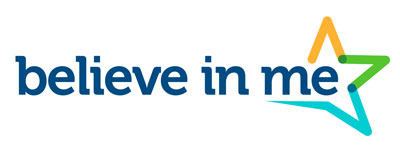
Childhood trauma is a pervasive issue that disproportionately affects marginalized youth, leaving lasting scars on their lives. Believe in Me, a leading nonprofit organization, is dedicated to helping every marginalized child develop the self-confidence they need to succeed through their Five Pillars of Caring. By addressing the impact of childhood trauma on marginalized youth, we aim to raise awareness and inspire action among other nonprofits, donors, and volunteers. Together, we can work towards building a more just and equitable community where all individuals can achieve their potential.
Unraveling Childhood Trauma: What Is It and How Does it Happen?
Childhood trauma refers to a range of adverse experiences during a child’s formative years, including physical, emotional, or sexual abuse, neglect, violence, or losing a loved one. These experiences can impact a child’s physical, emotional, and mental well-being, particularly in marginalized youth who may already be facing additional challenges related to poverty, discrimination, or social exclusion.
Childhood Trauma - Why it Negatively Affects Disadvantaged Youth More Than Their Peers
Marginalized youth face a higher risk of experiencing childhood trauma compared to their peers. Systemic racism, poverty, and limited access to resources and support systems contribute to this heightened risk. The National Survey of Children’s Health published that nearly 35 million children in the United States have experienced at least one form of childhood trauma, with children from low-income households, racial and ethnic minorities, and LGBTQ+ communities being disproportionately affected.
What Happens Over Time to Kids Who Experience Childhood Trauma?
The effects of childhood trauma can be both immediate and long-lasting. In the short term, children may experience difficulty sleeping, anxiety, depression, or behavioral problems. Over time, the impact of trauma can manifest in various ways, including:
- Difficulties in forming healthy relationships
- Increased risk of mental health issues
- Substance abuse
- Chronic health conditions
What Are the Most Common Sources of Childhood Trauma and Abuse, Anyway?
Marginalized youth are more likely to experience childhood trauma due to poverty, discrimination, unstable living conditions, and limited access to quality education and healthcare. Additionally, these children may be more vulnerable to abuse or neglect, as their families may struggle to provide a safe and supportive environment due to economic hardship or other challenges.
How Childhood Trauma Keeps Marginalized Kids from Developing and Learning
Childhood trauma can profoundly impact a child’s cognitive, emotional, and social development. Traumatic experiences can disrupt the brain’s ability to process information and regulate emotions, leading to attention, memory, and problem-solving difficulties. Moreover, children who have experienced trauma may struggle to form healthy attachments and relationships, impacting their ability to engage with peers and adults in academic and social settings.
How Mental Health Is Closely Tied to Traumatic Childhood Experience
The experience of childhood trauma can significantly increase the risk of developing mental health problems, such as depression, post-traumatic stress disorder (PTSD), or anxiety. Furthermore, children who have experienced trauma may also be more susceptible to substance abuse or self-harming behaviors as coping mechanisms.
Why It Is So Important For Kids to Bounce Back From Childhood Trauma
Resilience refers to an individual’s ability to adapt and recover from adversity. Factors contributing to stability in children who have experienced trauma include supportive relationships with caregivers, a sense of belonging in a community, and opportunities to develop coping skills and self-efficacy. By fostering resilience, organizations like Believe in Me can help children overcome the effects of childhood trauma and thrive.
The Power of Understanding: The Importance of Trauma-Informed Care
Trauma-informed care acknowledges the prevalence and impact of trauma and aims to create a safe and supportive environment for individuals who have experienced it. Trauma-informed intervention strategies focus on understanding, recognizing, and responding to the effects of trauma, promoting healing and recovery. By implementing trauma-informed care, organizations like Believe in Me can more effectively address the unique needs of marginalized youth affected by childhood trauma.
The Power of Community: How Support Systems Help Kids Recover From Trauma
A strong community and support system can play a critical role in helping children recover from the effects of childhood trauma. By providing a sense of belonging and security, communities can help build resilience in children and foster their emotional and social well-being. Community support is vital for marginalized youth, who must often overcome additional barriers when they need support services.
Embrace Empathy Today: Steps to Becoming a Trauma-Informed Organization
Becoming a trauma-informed organization involves adopting a trauma-informed approach in all aspects of the organization’s work, from policies and procedures to staff training and program development. Here are some ways your organization can get started right away:
- Create a safe and supportive environment
- Build staff awareness of trauma and its effects
- Foster a culture of empathy and understanding
Believe in Me: Helping Kids Through Our Five Pillars of Caring
Believe in Me is a nonprofit organization that provides comprehensive support for marginalized youth affected by childhood trauma. From safe and stable housing to community-building and educational opportunities, we offer a holistic approach to help kids establish the foundation they need for a successful future.
- Transitional Living Programs that provide kids with a safe place to call home: Believe in Me funds secure environments for marginalized youth by providing housing and shelter services, ensuring that children have a stable foundation to heal and grow.
- Foster Care and Adoption Services that offer love for children who need a family: Believe in Me understands the importance of attachment and belonging for children affected by childhood trauma. We help foster healthy relationships and connections with caring adults through mentorship and support programs.
- Wraparound Services that promote a feeling of community for kids that are often forgotten and alone: By organizing community events and facilitating group activities, Believe in Me helps children build connections and relationships that create a sense of support and belonging, crucial for long-term success.
- Education Support Services provide opportunities for marginalized youth to learn: Believe in Me promotes academic success and skill-building in a nurturing environment, recognizing the importance of education in overcoming the effects of childhood trauma and breaking the cycle of poverty.
- Enrichment programs that help kids find ways to build self-esteem and have fun: Through recreational activities and personal development programs, Believe in Me encourages personal growth, confidence, and positive experiences for children impacted by childhood trauma.
Believe in Me: Our Commitment to Justice and Equity for Every Kid
At Believe in Me, we promote justice and equity for all individuals, particularly marginalized youth who have experienced childhood trauma. We continually evaluate and improve our strategies, collaborating with other nonprofits, donors, and volunteers to ensure that all children have the opportunity to achieve their potential.
How You Can Contribute to a Brighter Future: Funds, Resources, and Time
Are you looking for ways to positively impact the lives of marginalized youth affected by childhood trauma? Believe in Me invites you to join our mission by contributing your funds, resources, or time to support our essential services and programs. Raising awareness of this critical issue and participating in our events and initiatives can help us amplify our impact and make a brighter future for these children. Together, we can inspire action and foster a broader understanding of the impact of childhood trauma.
- Supporting Believe in Me’s mission and programs: By aligning with our mission, other nonprofits, donors, and volunteers can help amplify our impact in addressing the effects of childhood trauma in marginalized youth.
- Donating funds, resources, or time: Donations enable Believe in Me to provide essential services and programs for children affected by childhood trauma. At the same time, volunteers can contribute their skills and expertise to support our efforts.
- Raising awareness of the impact of childhood trauma in marginalized youth: By sharing information and resources, we can collectively raise awareness of this critical issue, fostering a broader understanding and inspiring action.
- Participating in Believe in Me’s events and initiatives: Engaging in our events and initiatives allows nonprofits, donors, and volunteers to connect with our work, build relationships, and contribute to our mission.
Addressing the impact of childhood trauma on marginalized youth is a crucial step toward building a more just and equitable society. By understanding the unique challenges these children face and implementing trauma-informed strategies, Believe in Me is positively impacting the lives of many young people. We invite other nonprofits, donors, and volunteers to join our cause and help us on our quest to create a world where all individuals can achieve their potential, regardless of their circumstances or background. Let’s unite to create a brighter future for children experiencing trauma.




